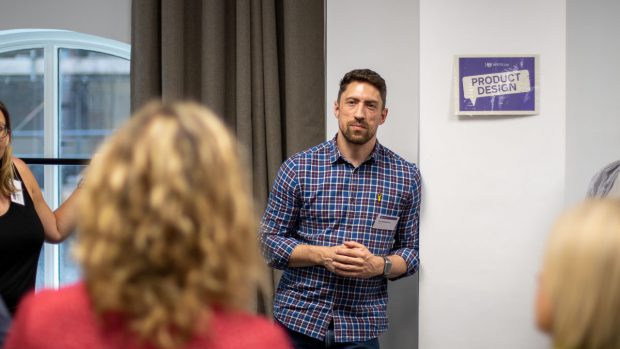BPDTS’s Emily Wilkinson, Interaction Designer, and Colin Jones, Content Designer, discuss their experience working together, offering 6 tips on how to deliver brilliant work in a fast-paced environment – without pulling each other’s hair out.
Pete Bates, a Content Designer at BPDTS, based in Newcastle, explains why designing with policy helps create better services. Part of Pete’s work is to ensure the service team with whom he works has the information they need. Asking the right questions, in a way that makes sense, improves the user journey by highlighting the …
As a core part of BPDTS's organisational culture, we’re creating an environment where learning is key to everything we do – where time spent working equals time spent learning. The BPDTS Product Talks provide an opportunity for people to learn as part of their continued personal development. In the latest Product Talk, we heard Lou …
If you’re involved in product design, please leave your assumptions at the door. Regardless of what role you play in the product lifecycle – a designer, front-end developer, or delivery manager, end-user research and experimentation have a role. Hypothesis driven design leads to better solutions – based on what users want, not what you think …



